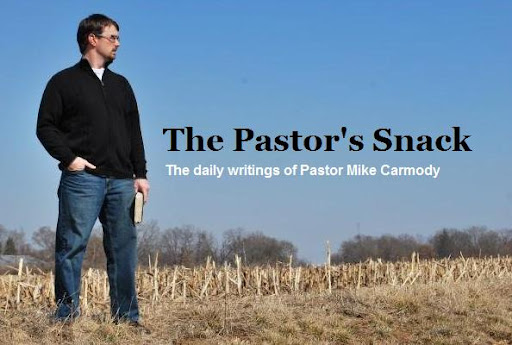Thus far we have seen the event of the Gospel through the eyes of Supremacy and through the eyes of Sovereignty. Today we will see the good news of the death and resurrection of Jesus Christ through His eyes of Submission.
Here’s a little snack: Review with me once again, with the spirit of submission, the 18th verse of John’s 10th Gospel chapter: “No man taketh it from me, but I lay it down of myself. I have power to lay it down, and I have power to take it again. This commandment have I received of my Father.” It is within the highlighted portion of this verse that we see Christ’s motive behind the execution of the Gospel. Submission to His Father’s command was the culminating factor in histories most iconic event… the death and resurrection of Jesus Christ (keep in mind that the death, burial and resurrection are not to be viewed as 3 separate events but rather 1 glorious gift of good news).
“This commandment have I received of my Father.” Jesus isn’t suggesting that the Gospel wasn’t His idea, nor was He telling us that this glorious event was news to Him- as if He were surprised by the command. But rather, this statement makes us privy to the condition of Christ’s heart when going to the cross- and making vacant earth’s most empty tomb. Love for the Father set in motion the most celebrated evidence of the Supremacy and Sovereignty of Jesus Christ.
“Submission” is a funny word. In our day, it is very difficult to see submissiveness as anything less than the result of dominating inferiority. As if Christ resisted, or else could have resisted the command of the Father. Do no let the events of the Gethsemane, the night before His execution; taint your view of Christ’s headlong entrance into His last days on earth. The heart of Christ was established before time- and that heart prevailed over any human emotion that would seek to alter the plan of the Trinity. Love for the Father carried Jesus through Gethsemane, in and out of Pilot’s judgment hall, along the Via Delarosa, up Calvary’s mountain, onto to wrath’s tree and out of a borrowed tomb! In fact, love for the Father provoked Jesus to lay it all down!
Submissiveness was the final act of love for Christ on earth. In fact, submissiveness defined the most hallowed 33 1/2 years of time. Philippians 2:8 says it most accurately: “And being found in fashion as a man, he humbled himself, and became obedient unto death, even the death of the cross.” But His obedience did not stop at the cross or find it’s resting place inside the hollowed crevices of a rock made for the remains of the dead. In victory over death and hell, Jesus came forth from the grave, as a testimony to His love for His Father. All praise be to the Name of Jesus Christ!
The Gospel exposes us to the Supremacy, Sovereignty and Submission of Christ. The greatest act of love ever witnessed.




